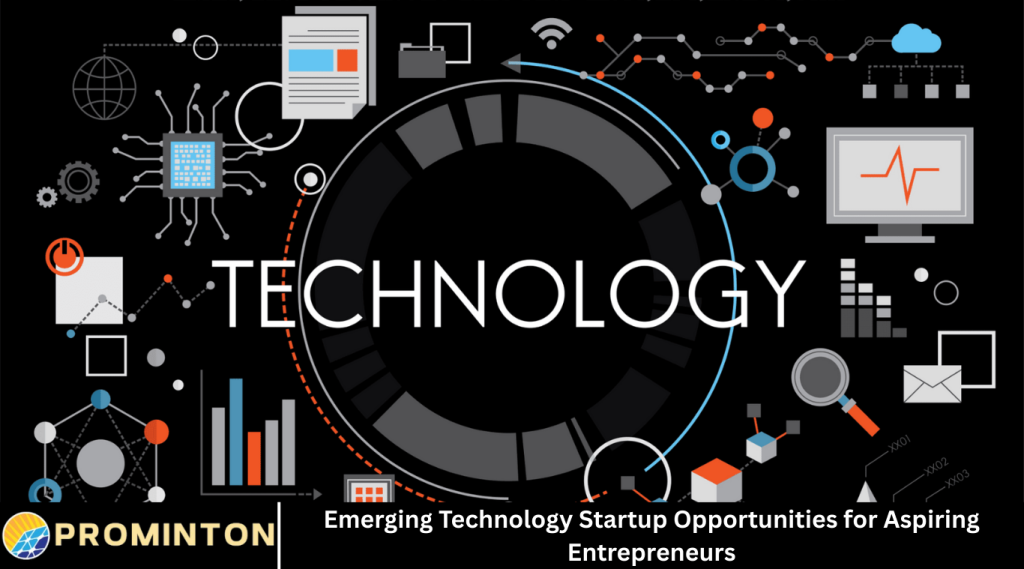Technology continues to evolve rapidly, creating new possibilities for entrepreneurs around the world. Emerging technologies are transforming industries and opening doors for startups to develop innovative products and services. For aspiring entrepreneurs, understanding these opportunities is key to building successful businesses that can thrive in the future economy.
This article explores some of the most promising areas in technology where startups can grow. It explains why these sectors are attractive, what challenges to expect, and how new entrepreneurs can position themselves to succeed. Whether you are just starting your entrepreneurial journey or looking to pivot your business into new tech areas, this guide offers insights and ideas to help you navigate the fast-changing world of technology startups.
Understanding Emerging Technologies
Emerging technologies refer to new or rapidly advancing tools, systems, and innovations that are beginning to impact markets. These technologies often solve problems in novel ways or create entirely new products and services.
For startups, emerging technologies present a unique opportunity. They allow entrepreneurs to create solutions before markets become saturated or dominated by large companies. However, working in emerging tech also requires staying informed about trends, being willing to experiment, and adapting quickly to changes.
Artificial Intelligence and Machine Learning
Artificial intelligence (AI) and machine learning (ML) are some of the most exciting and rapidly growing fields in technology. They involve creating systems that can learn from data, recognize patterns, and make decisions.
Startups in AI and ML can develop applications for many industries such as healthcare, finance, retail, and manufacturing. Opportunities include developing chatbots for customer service, predictive analytics tools, personalized marketing platforms, and autonomous vehicles.
The challenge lies in accessing quality data, hiring skilled talent, and ensuring ethical use of AI. However, the demand for AI-powered solutions is high and expected to grow.
Internet of Things (IoT)
The Internet of Things connects everyday devices to the internet, allowing them to send and receive data. This technology enables smart homes, wearable health devices, connected cars, and smart cities.
Startups can create IoT solutions that improve efficiency, safety, and convenience. Examples include smart energy management systems, remote health monitoring, and industrial equipment tracking.
IoT startups must focus on security, data privacy, and interoperability between different devices and platforms.
Blockchain and Cryptocurrency
Blockchain technology is a decentralized system that records transactions securely and transparently. It is the foundation for cryptocurrencies like Bitcoin and Ethereum but also has applications beyond digital money.
Startups can explore blockchain for supply chain management, secure voting systems, digital identity verification, and decentralized finance (DeFi).
Challenges include regulatory uncertainty and technical complexity. However, blockchain offers opportunities to disrupt traditional industries with more transparent and efficient processes.
Augmented Reality (AR) and Virtual Reality (VR)
AR and VR technologies create immersive digital experiences. AR overlays digital elements onto the real world, while VR creates a fully virtual environment.
Startups can use AR and VR in gaming, education, training, real estate, and healthcare. For example, AR apps can help customers visualize products before buying, and VR can offer remote training simulations.
Developing content and hardware that deliver engaging and comfortable experiences is key to success in this sector.
Renewable Energy and Clean Technology
As the world shifts towards sustainability, renewable energy and clean technology present growing opportunities. This includes solar, wind, energy storage, electric vehicles, and smart grids.
Startups can innovate in energy-efficient appliances, battery technologies, waste management, and carbon footprint tracking.
The renewable energy sector often requires partnerships with governments and large companies, but it offers long-term growth potential driven by environmental concerns.
Biotechnology and Health Tech
Biotechnology uses living systems to develop products for healthcare, agriculture, and other fields. Health technology combines biology with digital tools to improve medical care.
Startups in this space might work on gene editing, personalized medicine, telehealth platforms, or wearable health monitors.
Regulatory approvals and scientific challenges can be hurdles, but advances in these technologies are transforming how health problems are addressed.
Robotics and Automation
Robotics involves designing machines that can perform tasks automatically. Automation uses technology to complete repetitive tasks without human intervention.
Startups can focus on manufacturing robots, drones, automated customer service, or robotic process automation (RPA) for businesses.
The market for robotics is expanding as companies look to improve productivity and reduce costs.
Cybersecurity
With increasing digitalization, cybersecurity is more important than ever. Protecting data, networks, and systems from attacks is a critical need for businesses and individuals.
Startups can develop solutions for threat detection, identity management, secure communications, and data privacy.
Staying ahead of evolving cyber threats requires constant innovation and expertise.
Opportunities in Fintech
Financial technology (fintech) uses software and digital platforms to improve financial services. This includes mobile banking, payment processing, lending platforms, and investment apps.
Fintech startups have revolutionized how people access financial products, making services more accessible and convenient.
The fintech sector faces regulatory challenges but remains a fertile ground for innovation.
Preparing for Emerging Tech Startup Success
Understanding opportunities is only part of the journey. Aspiring entrepreneurs need to prepare properly to succeed in emerging tech sectors.
Start by researching the market to identify real problems that technology can solve. Develop a clear business plan that outlines your product, target customers, and revenue model.
Build a minimum viable product (MVP) to test your ideas quickly with real users. Collect feedback and adapt your product based on what customers need.
Focus on building a skilled and motivated team. Consider partnerships and collaborations to access resources and expertise.
Stay informed about technology trends and regulations that may impact your startup.
Challenges Faced by Emerging Tech Startups
While the opportunities are exciting, emerging tech startups also face unique challenges.
Funding can be difficult to secure due to the experimental nature of new technologies.
Hiring talent with the right skills may be competitive and costly.
Regulatory hurdles can slow down product development, especially in areas like biotech and fintech.
Market adoption may take time as customers learn to trust and use new technologies.
Entrepreneurs must be prepared to handle these challenges with persistence and adaptability.
Building a Strong Network and Community
Networking plays a crucial role in startup success. Connecting with other entrepreneurs, investors, mentors, and industry experts can provide valuable guidance and opportunities.
Join startup incubators, accelerators, and technology communities that focus on your sector.
Attend conferences, webinars, and workshops to stay updated and meet potential partners.
Building relationships helps you learn from others’ experiences and gain support.
Leveraging Government and Industry Support
Many governments and organizations offer support programs for technology startups. These include grants, tax incentives, training, and access to research facilities.
Explore available programs in your region that can provide financial or technical assistance.
Collaborate with universities and research centers to benefit from innovation ecosystems.
Such support can reduce risks and accelerate your startup’s growth.
Frequently Asked Questions
What are emerging technologies?
Emerging technologies are new or rapidly advancing tools and innovations that are beginning to impact industries and markets in significant ways.
Why should entrepreneurs focus on emerging tech startups?
Emerging technologies provide opportunities to create innovative products with less competition and the potential for high growth.
How can startups stay updated with fast-changing technologies?
Entrepreneurs can follow industry news, attend events, join communities, and network with experts to keep up with trends.
What challenges do emerging tech startups face?
Challenges include securing funding, hiring skilled talent, navigating regulations, and encouraging market adoption.
How important is customer feedback in emerging tech startups?
Customer feedback is critical to refine products, ensure market fit, and adapt to changing needs.
Are there specific industries better suited for emerging tech startups?
Industries like healthcare, finance, energy, manufacturing, and retail often have strong demand for new technology solutions.
How can new entrepreneurs find support for their startups?
Entrepreneurs can seek support from government programs, incubators, accelerators, mentors, and industry partnerships.
Conclusion
Emerging technologies offer tremendous opportunities for aspiring entrepreneurs to innovate and build impactful businesses. Fields like artificial intelligence, IoT, blockchain, renewable energy, biotechnology, and fintech are just some areas where startups can create value.
Success in these sectors requires understanding market needs, building adaptable products, managing resources wisely, and staying connected with the community. Challenges such as funding, regulations, and talent acquisition are part of the journey but can be overcome with preparation and persistence.



